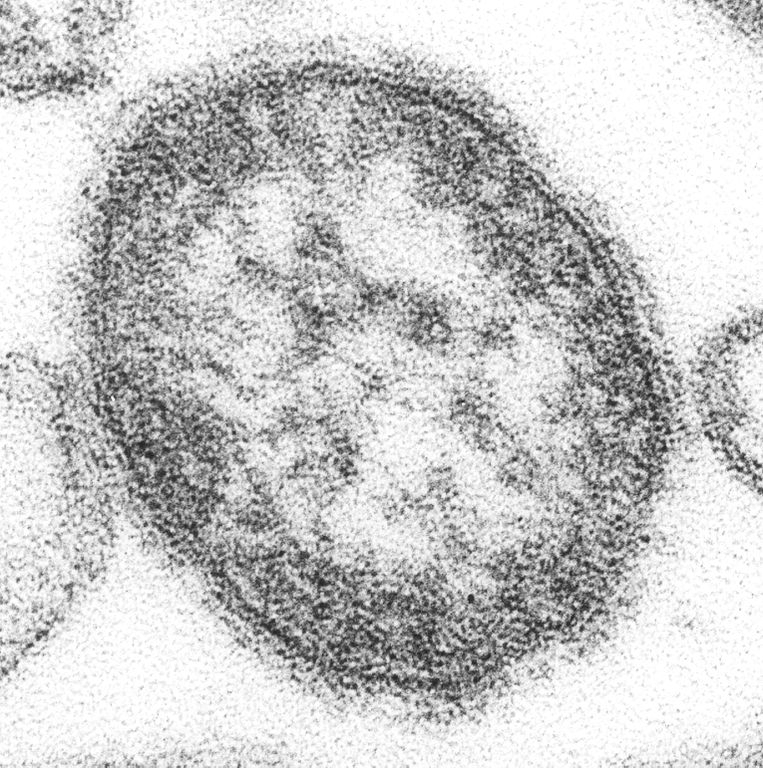


A population study conducted at a regional center of the state of São Paulo (Brazil) showed that 32.9% of subjects under 40 had no immunity against the disease, compared with only 1% in those over 50 (image: Measles Morbillivirus, the measles virus / CDC, Wikimedia Commons)
Published on 03/25/2021
By José Tadeu Arantes | Agência FAPESP – In São José do Rio Preto, state of São Paulo (Brazil), almost a third of the population aged 10-40 are estimated to have no antibodies against measles, according to a new study that tested 981 people in various age groups. São José do Rio Preto is the largest city in the state’s northwestern region, with approximately half a million inhabitants.
According to the survey, 32.9% of those tested in the under-40 age group were not immune to measles, compared with the 99% immunity observed in the over-50 age group.
The study was supported by FAPESP. The principal investigator was Maurício Lacerda Nogueira, a professor in the São José do Rio Preto Medical School and former chair of the Brazilian Society for Virology. The findings are published in Scientific Reports, an online journal owned by Springer Nature.
“Considering the total number with documented evidence of vaccination, 39.3% did not have immunity against measles, and 20.2% lacked antibodies against rubella. These percentages are sufficient to protect the population against rubella but not against measles. The combined vaccine against measles, mumps, and rubella [MMR] is part of the national vaccination calendar in Brazil,” Nogueira told Agência FAPESP.
The study, he added, suggests that there is a correlation linking the production of antibodies, vaccination, and exposure to the virus. The percentage of immune individuals among those aged more than 50 years who had been exposed to the virus throughout their lives was far higher than that among the younger age groups, even when they had been vaccinated.
“This relatively high seronegativity rate [lack of antibodies] needs to be investigated, but vaccination is the main weapon we have and absolutely mustn’t be discarded,” Nogueira said.
Measles were considered to be eradicated for years but re-emerged in several countries, including Brazil, after a decline in vaccination coverage. In the prevaccination period, it was a common disease in patients under 10 years of age, and despite a low mean mortality rate, it is estimated to have caused 5 million to 8 million deaths worldwide.
Measles is highly contagious, with a basic reproduction number (R0) of 12-18, meaning that each person with measles could transmit the virus to between 12 and 18 people in a totally susceptible population. For the sake of comparison, the novel coronavirus (SARS-CoV-2) has an R0 of 2-3, according to the World Health Organization (WHO).
“Measles can be controlled by vaccination programs that reach 95% coverage with two doses of the vaccine,” Nogueira said. “In addition, cases have to be properly identified, and measures must be taken to prevent transmission.”
According to a recently published study, the prevalence of measles in Brazil started to fall in 1998 as a result of vaccination. The last locally acquired case was reported in 2000.
An outbreak in 2013-15 produced 1,310 reported cases. The Pan American Health Organization (PAHO-WHO) implemented an action plan that was successful, and endemic transmission was considered eradicated in the Americas in 2016. In 2017, however, cases were reported in the United States, Canada, Venezuela and Argentina. The disease recently began circulating in Brazil again, with 11,371 confirmed cases and 12 deaths in 2018-19.
“The spread of vaccine refusal has become a risk factor for measles outbreaks, and the WHO has identified vaccine hesitancy as one of the top ten global health threats in 2019,” the researchers stress in the Scientific Reports article.
The article “Prevalence of measles antibodies in São José do Rio Preto, São Paulo, Brazil: A serological survey model” can be downloaded at www.nature.com/articles/s41598-020-62151-3.pdf.
Source: https://agencia.fapesp.br/32889